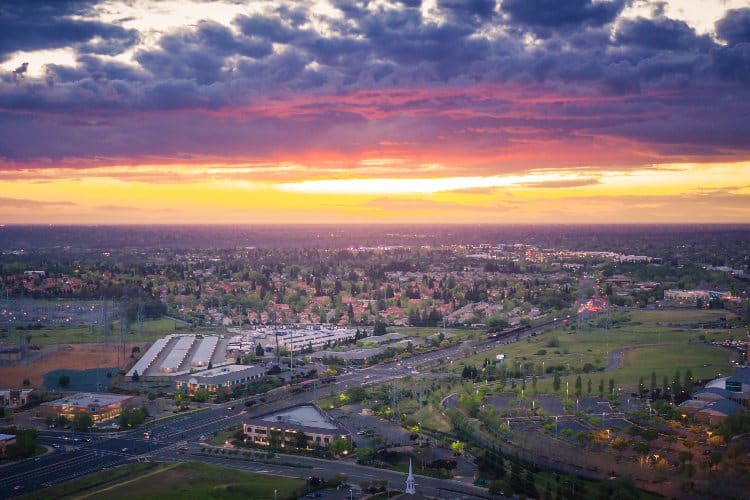



Finding comprehensive mental health care in Orange County that addresses both your immediate crisis and long-term wellness shouldn’t require traveling far from home. D’Amore Mental Health operates residential treatment facilities serving Fountain Valley residents seeking intensive mental health support in a compassionate, evidence-based environment. With locations in nearby Costa Mesa and our new specialized OCD treatment facility (El Rubi) right in Fountain Valley, our programs provide the perfect balance of accessibility for local families and the therapeutic environment needed for healing.
Our Fountain Valley-area residential programs offer what sets D’Amore apart: an exceptional 2-to-1 or 3-to-1 staff-to-client ratio, private accommodations, and round-the-clock clinical support. Whether you’re struggling with depression, anxiety, bipolar disorder, OCD, or other mental health challenges, our team creates individualized treatment plans that address your unique needs while maintaining strong connections to your Fountain Valley community.

D’Amore’s strategic presence in Fountain Valley and Costa Mesa means local residents can access premier residential mental health care without the stress of traveling across the county or state. Our El Rubi facility in Fountain Valley specializes in OCD treatment with gender-specific programming, while our Costa Mesa location provides comprehensive care for a full range of mental health conditions. This proximity allows Fountain Valley family members to participate actively in treatment through our family therapy programs while providing the therapeutic separation that supports recovery.
D’Amore’s El Rubi facility brings cutting-edge OCD treatment directly to Fountain Valley residents. This specialized center offers:
Just minutes from Fountain Valley, our Costa Mesa facility provides residential treatment for the full spectrum of mental health conditions in a home-like setting that combines clinical excellence with comfort and dignity.
What truly distinguishes D’Amore is our commitment to individualized attention through our Gracious Redundancy® philosophy. With staff-to-client ratios of 2-to-1 or 3-to-1, Fountain Valley residents receive personalized care that simply isn’t possible in larger facilities. This means more therapeutic contact, faster crisis intervention when needed, and treatment plans that evolve with your progress rather than following a rigid institutional schedule.
Unlike traditional psychiatric hospitals, D’Amore’s residential facilities combine the clinical excellence of intensive treatment with the comfort of carefully designed therapeutic environments. Fountain Valley clients benefit from:
D’Amore’s Fountain Valley-area residential programs provide specialized treatment for a comprehensive range of mental health conditions:
Depression is a common emotional disorder marked by prolonged feelings of intense sadness, hopelessness, and disinterest in previously enjoyed activities. This condition can disrupt one's work, sleep, eating habits, and overall zest for life. The intensity of depression can range widely, typically presenting a profound shift in mood and daily function.
Bipolar Disorder involves significant mood fluctuations, from extreme euphoria or irritability (mania) to deep depression. Bipolar I Disorder is characterized by severe episodes at both ends of the mood spectrum, whereas Bipolar II Disorder involves a less intense form of mania known as hypomania.
Anxiety Disorders encompass a variety of conditions where chronic and overwhelming anxiety adversely affects daily functioning. This group includes disorders such as generalized anxiety disorder, panic disorder, and social anxiety disorder. Common treatments include cognitive-behavioral therapy and medication.
Obsessive-Compulsive Disorder (OCD) is defined by persistent, unwanted thoughts (obsessions) and ritualistic behaviors (compulsions) that a person is driven to perform. These compulsions and obsessions can significantly disrupt everyday life, with treatments typically involving psychotherapy and medications.
Schizophrenia & Schizoaffective Disorder represent severe mental health conditions impacting a person’s thinking, feeling, and behavior, often resulting in delusions, hallucinations, and disorganized thought processes. Schizoaffective disorder includes symptoms of both schizophrenia and mood disorders.
Adult ADHD is identified by ongoing issues with attention, impulsiveness, and overactivity, which can profoundly affect one's daily living, relationships, and work. Treatment strategies often combine medications, psychotherapy, and lifestyle adjustments.
Dual Diagnosis describes the concurrent presence of a mental health disorder and a substance use disorder, necessitating a comprehensive treatment strategy that addresses both conditions through detoxification, rehabilitation, and supportive therapies.
Suicidal Ideation involves thoughts of, planning for, or an obsession with suicide, ranging from brief considerations to elaborate planning. Treatment approaches often focus on crisis intervention, therapeutic support, and medications, prioritizing safety planning and treatment of the underlying mental health issues.
Chronic Pain is long-lasting pain that persists for months or even years and can severely affect one's mental health and quality of life. Managing chronic pain typically involves a multifaceted approach, including medical treatments, physical therapy, psychological support, and lifestyle changes.
Every Fountain Valley client begins with a thorough psychiatric evaluation and comprehensive assessment conducted by our experienced clinical team. We develop personalized treatment plans that address your specific symptoms, trauma history, co-occurring conditions, and recovery goals through proven therapeutic modalities:
Dialectical Behavior Therapy (DBT) combines individual psychotherapy with group skills sessions to help individuals manage severe emotional disturbances, self-harm behaviors, and unstable relationships. DBT emphasizes developing skills in four crucial areas: mindfulness, distress tolerance, emotion regulation, and interpersonal effectiveness, aiding in achieving emotional and psychological stability.
Cognitive Behavioral Therapy (CBT) is a proven, structured approach that helps individuals identify and correct problematic thoughts and beliefs. Through targeted interventions, CBT modifies adverse behaviors and is effective in treating a variety of psychological issues, including depression, anxiety disorders, and specific phobias.
Equine Therapy utilizes guided interactions with horses to foster emotional healing and personal growth. This therapy goes beyond riding to include activities like grooming and leading horses, which are instrumental in building skills such as empathy, self-awareness, and communication.
Art and Music Therapy involve using the arts as a medium for therapeutic expression. These therapies facilitate the exploration and expression of emotions through creative activities, providing an alternative for those who might struggle with more conventional forms of therapy.
Individualized Treatment recognizes the uniqueness of each client’s path to recovery by customizing therapeutic interventions to fit specific needs and personal circumstances, ensuring a more effective and impactful treatment experience.
Medication Management focuses on the meticulous oversight and fine-tuning of psychiatric medications. This collaborative process involves patients in the decision-making to enhance treatment efficacy and symptom management.
Family Therapy aims to enhance familial relationships and communication, address conflicts, and explore the dynamics that might influence a family member's mental health. This therapy modality delves into family roles and patterns, fostering healthier interactions and support systems.
Group Therapy offers a communal and supportive setting where individuals can share their experiences and learn from peers facing similar challenges. It is a space for practicing new skills, gaining insights, and receiving supportive feedback within a safe and encouraging environment.
Crisis Stabilization provides immediate assistance and intervention by experienced providers for individuals in a mental health crisis. These services deliver rapid, short-term treatment aimed at quickly stabilizing the person, ensuring their safety, and setting the stage for ongoing recovery efforts.

Fountain Valley residents entering our programs can expect a structured yet flexible approach that balances therapeutic intensity with respect for individual needs:
You can view a detailed sample schedule of what a typical day looks like at D’Amore Mental Health.
We understand that Fountain Valley families want to stay connected and involved throughout treatment. D’Amore offers multiple ways for loved ones to participate:
Sustainable recovery requires thoughtful discharge planning that creates continuity of care. As Fountain Valley clients near completion of residential treatment, our team develops comprehensive aftercare plans that may include:
D’Amore Mental Health is in-network with many major insurance providers, including:
Our admissions team is available 24/7 to verify your insurance benefits, explain coverage, discuss any out-of-pocket costs, and answer questions about the admissions process. We work diligently to make quality mental health treatment accessible to Fountain Valley residents who need it.
If you or a Fountain Valley loved one is struggling with mental health challenges, residential treatment at D’Amore Mental Health offers the intensive support and evidence-based care needed for lasting recovery. Our specialized OCD treatment at El Rubi in Fountain Valley and comprehensive mental health services in Costa Mesa provide local access to exceptional care.

Our El Rubi facility specializing in OCD treatment is located directly in Fountain Valley, while our comprehensive mental health residential program is in nearby Costa Mesa—just minutes away via the 405 freeway. Both locations are easily accessible for Fountain Valley families.
El Rubi offers specialized OCD treatment using Exposure Response Prevention (ERP) therapy delivered by extensively trained clinicians, with gender-specific programming that recognizes how OCD impacts men and women differently. The program maintains D’Amore’s exceptional staff ratios while focusing specifically on OCD and related conditions.
Yes, family involvement is a cornerstone of our treatment approach. We offer structured visiting hours, weekly family therapy sessions (in-person or virtual), and regular communication with your treatment team. The close proximity of our facilities makes it convenient for Fountain Valley families to stay connected throughout treatment.
Residential treatment provides 24/7 clinical support, intensive daily therapy (multiple hours per day vs. weekly outpatient sessions), immediate access to psychiatric care, peer support, and removal from environmental triggers that may be maintaining symptoms. It’s appropriate when outpatient treatment hasn’t been sufficient or when symptoms require more intensive intervention and support.
Yes, D’Amore provides integrated dual diagnosis treatment addressing both mental health conditions and substance use issues simultaneously. We recognize that these conditions often interact and require coordinated treatment for lasting recovery.
We develop individualized aftercare plans that typically include stepping down to our Partial Hospitalization Program (PHP) or Intensive Outpatient Program (IOP), followed by traditional outpatient therapy and ongoing medication management as needed. We also connect clients with community resources and support groups to maintain progress after treatment concludes.
Residential treatment may be appropriate if you’re experiencing: severe symptoms interfering with daily functioning, safety concerns including suicidal thoughts, previous unsuccessful outpatient treatment, need for medication stabilization with close monitoring, co-occurring conditions requiring integrated treatment, or lack of adequate support in your home environment. Our admissions team can help assess which level of care is most appropriate for your situation.